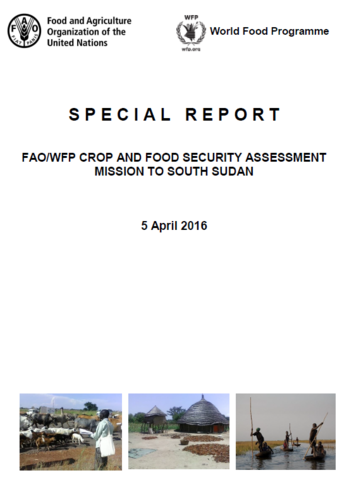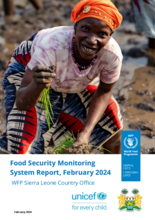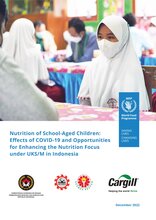
The Mission estimated the 2015 net cereal production in the traditional sector at about 921 000 tonnes, about 9 percent below the 2014 very good output, but still about 16 percent above the last five-year average production. Despite some dry spells between May and August, seasonal rains in 2015 have been generally abundant and prolonged until December. Major reductions in output have been reported in Western Bahr el Ghazal and Eastern Equatoria states due to unfavourable rainfall as well as in Western Equatoria State due to the disruption of cropping activities following worsening security conditions. The overall cereal deficit in January-December 2016 marketing year is estimated at about 380 000 tonnes, over 130 000 tonnes higher than the deficit estimated for 2015. About 12 percent of the population was estimated to be severely food insecure at end of 2015, a record level during the harvest period. Food security worsened not only in conflict affected areas of Greater Upper Nile Region, but also in other states as a consequence of the economic downturn and skyrocketing prices which limited access to food for most households. In 2016, WFP plans to assist 3 million people providing about 315 000 tonnes of food. Although a large component addresses the needs of people directly affected by conflict in the Greater Upper Nile Region, WFP assistance will also focus on school feeding, nutrition interventions and food for assets programs. The Mission stressed that the achievement of a stable and lasting peace is paramount in order to progress in terms of agricultural development and improving food security. In order to strengthen local production and reduce the food gap in 2017, FAO’s emergency response will assist over 3 million people with agricultural inputs (often through a system of seed fairs and vouchers) to support planting activities, as well as vegetable and fishing kits, and livestock vaccination/treatment. Moreover, FAO is implementing several resilience building programs in the Greater Equatoria and Bahr El Ghazal regions.
| Document | File |
|---|---|
| Full Report [English] |
PDF | 2.32 MB
Download
|


